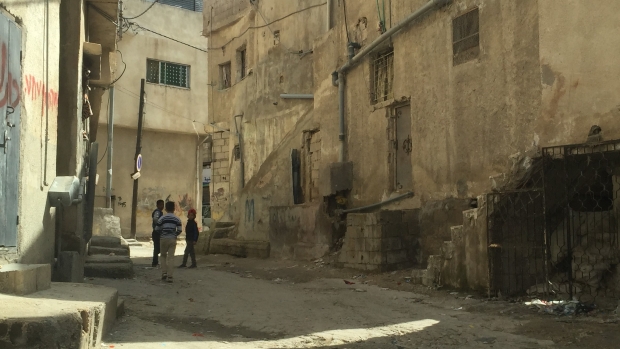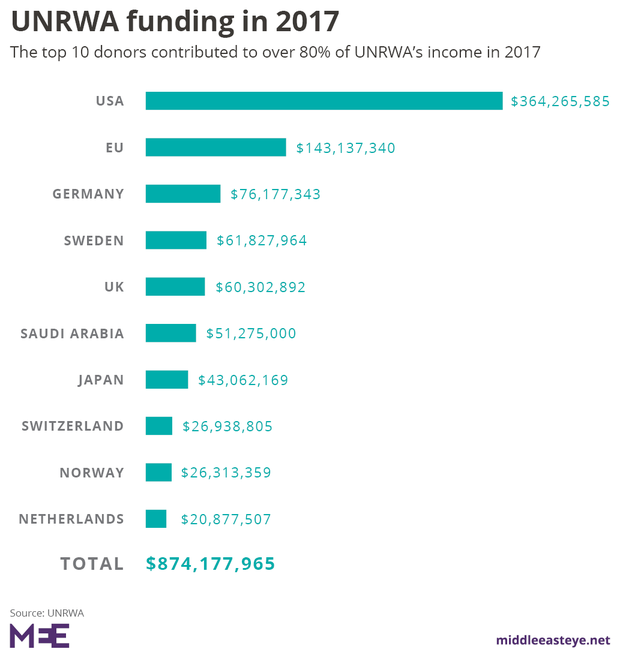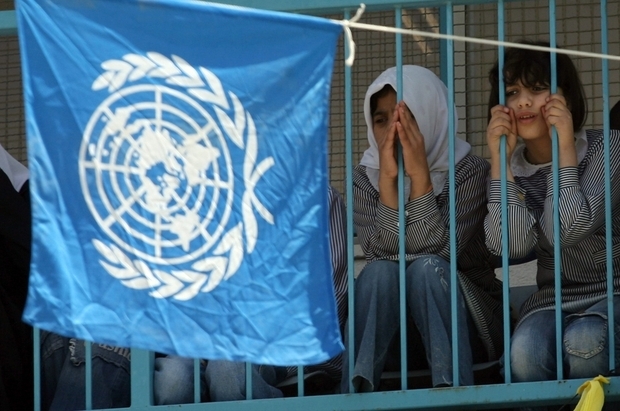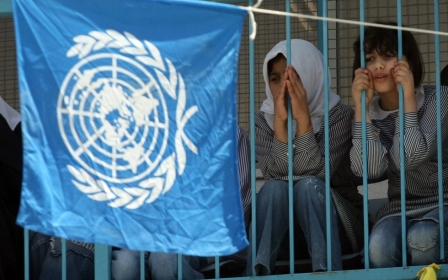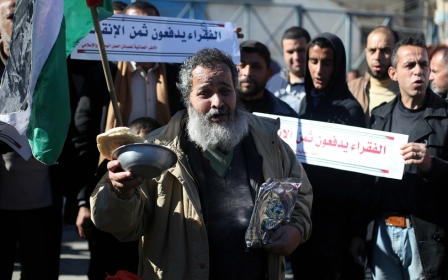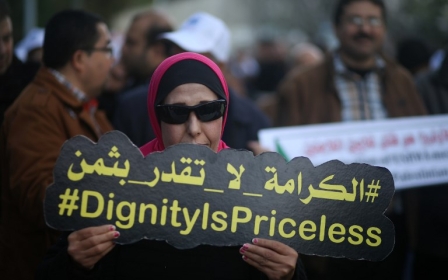'Put the refugees to bed': Why Israel wants to kill UNRWA
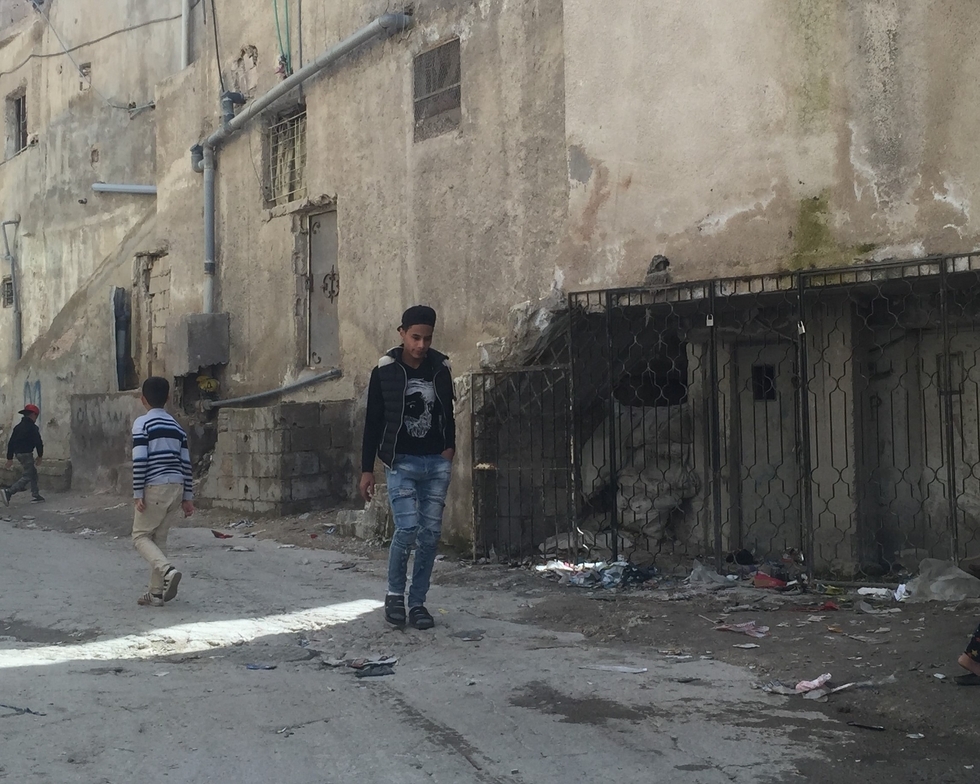
The population of Lincoln, in the East Midlands, stands at 94,600. Throw in North Hykeham and Waddington, and the population of the urban area is around 130,200. There are 20 secondary schools and sixth form colleges and 60 primary schools based in the UK cathedral city alone.
The population of al Baqa'a refugee camp in Jordan is 140,000. Set up as one of six "emergency" camps after Jordan's defeat in the 1967 war, it has become the country's largest Palestinian refugee camp. It has 16 schools, eight for boys, and eight for girls.
The main school has 16,000 students alone, with between 50 and 54 pupils to one class. To cope with the numbers, each school works on a double shift.
Not just a relief agency
The United Nations Relief and Works Agency (UNRWA), which runs the schools, also operates two health centres providing primary healthcare, and collects the rubbish in the overcrowded camp. Baqa'a is crammed into 1.4 square kilometres, one 25th of the size of Lincoln. It employs between 700 and 800 workers.
So when US President Donald Trump froze half of its planned $125m package to UNRWA in January, the refugees of Baqa'a did their maths. Ziad Qutaishat, who runs the main charity in the camp, said: "It's a simple calculation. Each UNWRA worker earns 400 Jordanian Dinars (JD) ($565) a month.
"That means if UNWRA cut its workforce in Baqa'a, 280,000 JD would be lost from the camp. This would be a disaster. UNWRA is not just a relief agency. It's the ecosystem keeping this camp together."
Having achieved one victory by getting Trump to recognise Jerusalem as Israel's capital, Netanyahu has set his sights on another strategic prize - the end of the refugee issue
But this is exactly why the prime minister of Israel, Binyamin Netanyahu, wants to dismantle it. In January, Netanyahu declared that UNRWA aims to perpetuate "the narrative of the so-called 'right of return', with the aim of eliminating the State of Israel, and therefore, UNRWA must pass from this world." Netanyahu declared his strategic objective was to put the Palestinian right of return "to bed".
That was until Netanyahu returned to power as prime minister. Having achieved one victory by getting Trump to recognise Jerusalem as Israel's capital, Netanyahu has set his sights on another strategic prize - the end of the refugee issue.
In Trump and his national security adviser, John Bolton, the Israeli prime minister believes he has the perfect opportunity to do so.
No refugees, no problem
Standing in his way is UNWRA, a UN agency set up specifically to deal with Palestinian refugees. It is a target not merely because it provides Palestinians with a high standard of education, but because, in Israel's eyes, it allows the descendants of first-generation refugees to maintain their refugee status in their host countries. It wants UNWRA to hand over its responsibility the UNHCR.
These statements have shot the plight of five million Palestinians refugees that lay dormant for decades, to the forefront of the Palestinian campaign. Four years ago, Land Day, when Palestinians revive their right of return by staging symbolic marches towards their former villages, was a one-day affair.
As tens of thousands of Gazans are attempting, symbolically, to break the siege, Abbas is still reinforcing it. Neither Hamas nor Fatah have any bearing on what will happen next. This protest is genuinely popular
Thousands gathered in Arraba, Northern Israel; Sawawil, a Bedouin village in the Negev; and a few dozen in Jabaliya in Gaza. There were all of 70 demonstrators outside the Damascus Gate in East Jerusalem, and by evening it was all over.
The two demonstrations so far this month have involved tens of thousands. Thirty one Palestinians have been killed and hundreds injured by snipers stationed on the border fence with Gaza to enforce the no-go zone. Protest camps have sprung up 700 metres from the border fence. There is no sign of the protest dying down, and we are still weeks away from the anniversary of the Nakba in May.
The Israeli Army was at first blindsided by the sight of 30,000 unarmed protesters marching towards the border fence. In a tweet captured by B'Tselem before being deleted, the Israeli army said they knew "where every bullet landed". 773 Palestinians were shot that day with live fire.A history of war crimes
The history of this conflict is littered with war crimes. The difference this time is that senior Israeli ministers not only feel that they have nothing to apologise for, they actively rejoiced in the killings.
Israel's defence minister Avigdor Lieberman summed up his government's attitude to the Palestinians of Gaza - and one suspects Palestinians in general - when he said: "There are no innocent people in Gaza. Everyone's connected to Hamas, everyone gets a salary from Hamas and all the activists trying to challenge us and breach the border are Hamas military wing activists."
When a video shot on 22 December by a sniper was screened on Channel 10, it evinced the same response. The video recorded one of the soldiers whooping in excitement as the Palestinian is shot : "Wow, what a video!... YES! That son of the bitch."
Naftali Bennett, minister of education, told Ynet: "Since when do we judge a soldier according to the elegance of his speech? I prefer a cheerful soldier to a grieving father."
The public security minister, Gilad Erdan, from Netanyahu's Likud party, told Ynet: "I believe in the purity of the soldiers' weapons and the ethics of combat. Hence, my principle is always to defend, indeed, soldiers who are on the battlefield.”
New form of protest
On the Palestinian side, there are new elements to this form of protest. Unlike the second or even the first intifadas, it has been so far wholly peaceful. No Israeli soldiers have been fired at, or indeed injured. Gaza's arsenal of home-made weapons has been left at home.
It's also leaderless. Hamas was initially reluctant to become involved, although it acknowledged that some of its members had been killed. Far from supporting the Gaza demonstrations, Mahmoud Abbas, the Palestinian president who faces isolation from Washington over his opposition to the recognition of Jerusalem as the capital of Israel, has continued to refuse to pay the salaries of public workers in Gaza.
The third element of the tactic at protesting is that it is infectious. If it continues, there will be a reaction in the West Bank. There are also talks in the Palestinian diaspora in Jordan about staging demonstrations at Israel's border there.
By May, Israel could find itself in the situation in which it faces demonstrations on all its borders, which is why it wants to literally kill off this form of protest now.
The fourth element is that this action is a slap in the face for Israel's Arab allies. Two months before Israel's offensive, Abbas had been told in Riyadh by Crown Prince Mohammed bin Salman that Palestinians would not get East Jerusalem as their capital and there would be no right of return for Palestinian refugees or their descendants.
Unintended consequences
The further Saudi Arabia, the Emiratis and Egypt attempt to bolster Israel and America's plans for what Trump has called "the deal of the century", the more they undermine the Palestinian cause and distance themselves from the very raw feelings of the Arab street.
One way or another, the unintended consequence of all of these stratagems to "put the refugees to bed" is that the refugee issue has regained its place centre stage of the conflict.
Kazim Ayesh spent 27 years as an UNWRA teacher in Jordan. He told me: "UNWRA is an international witness to the crimes against the Palestinian people. That is why they want to kill this witness and why they want to teach the next generation of Palestinians that Jerusalem is not the capital of Palestine and occupied Palestine is not your country.
"All Palestinians encourage their children to learn. They know it's the only way to continue their lives and they go to the Gulf countries in their thousands. But for me as a teacher in UNWRA it is not about motivation.
"They have to learn to take back their rights. Their motivation is high. The camps will remain as a symbol of the refugee issue, whether or not you try to force the refugees out. We make sure they do not lose their Palestinian identity and that it is possible for them to plan to go back to their homeland."
- David Hearst is editor-in-chief of Middle East Eye. He was chief foreign leader writer of The Guardian, former Associate Foreign Editor, European Editor, Moscow Bureau Chief, European Correspondent, and Ireland Correspondent. He joined The Guardian from The Scotsman, where he was education correspondent.
The views expressed in this article belong to the author and do not necessarily reflect the editorial policy of Middle East Eye.
Photo: Al-Baqa'a camp has become Jordan's largest Palestinian refugee camp (Photo: Mohammed Ayash)
Middle East Eye propose une couverture et une analyse indépendantes et incomparables du Moyen-Orient, de l’Afrique du Nord et d’autres régions du monde. Pour en savoir plus sur la reprise de ce contenu et les frais qui s’appliquent, veuillez remplir ce formulaire [en anglais]. Pour en savoir plus sur MEE, cliquez ici [en anglais].



